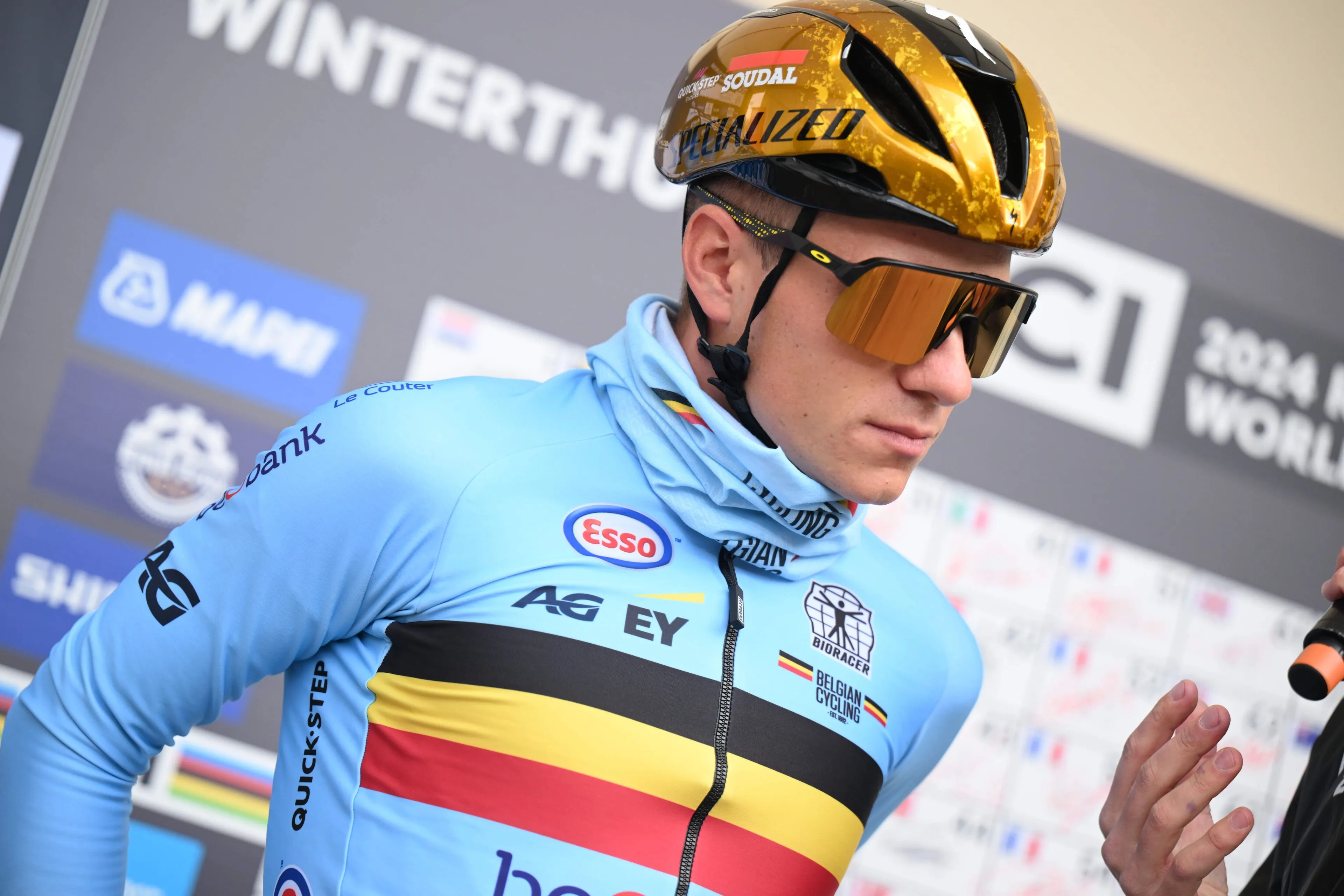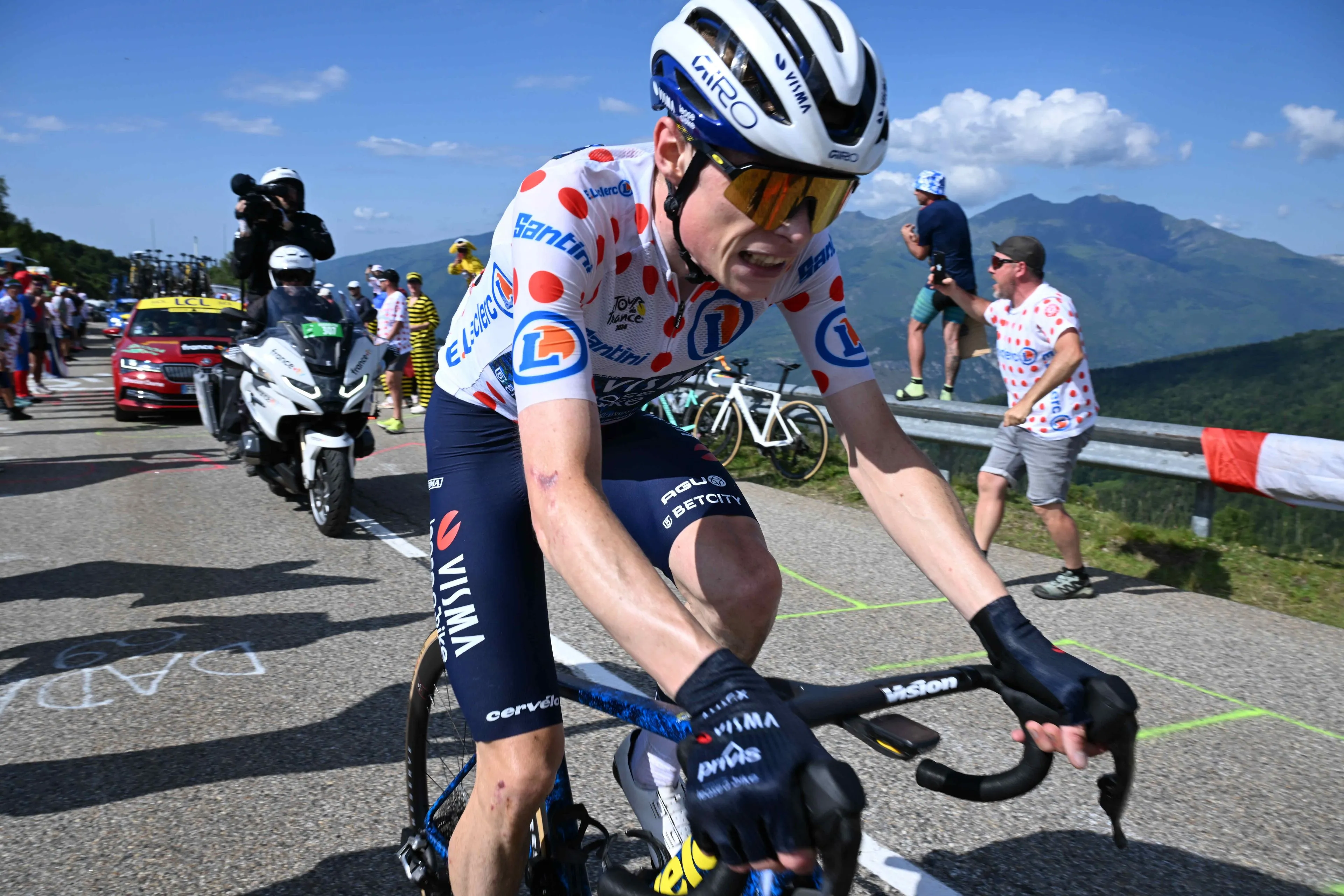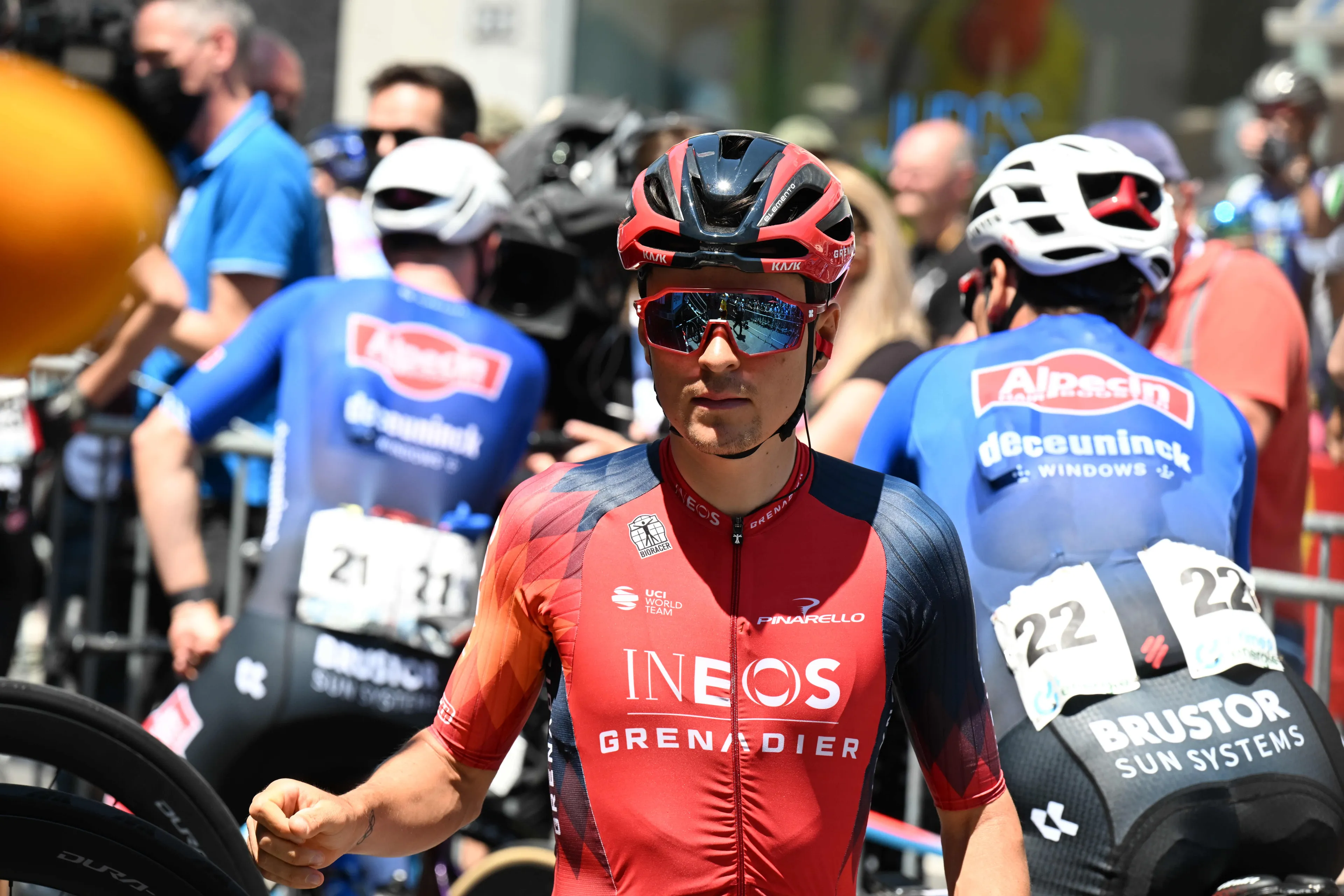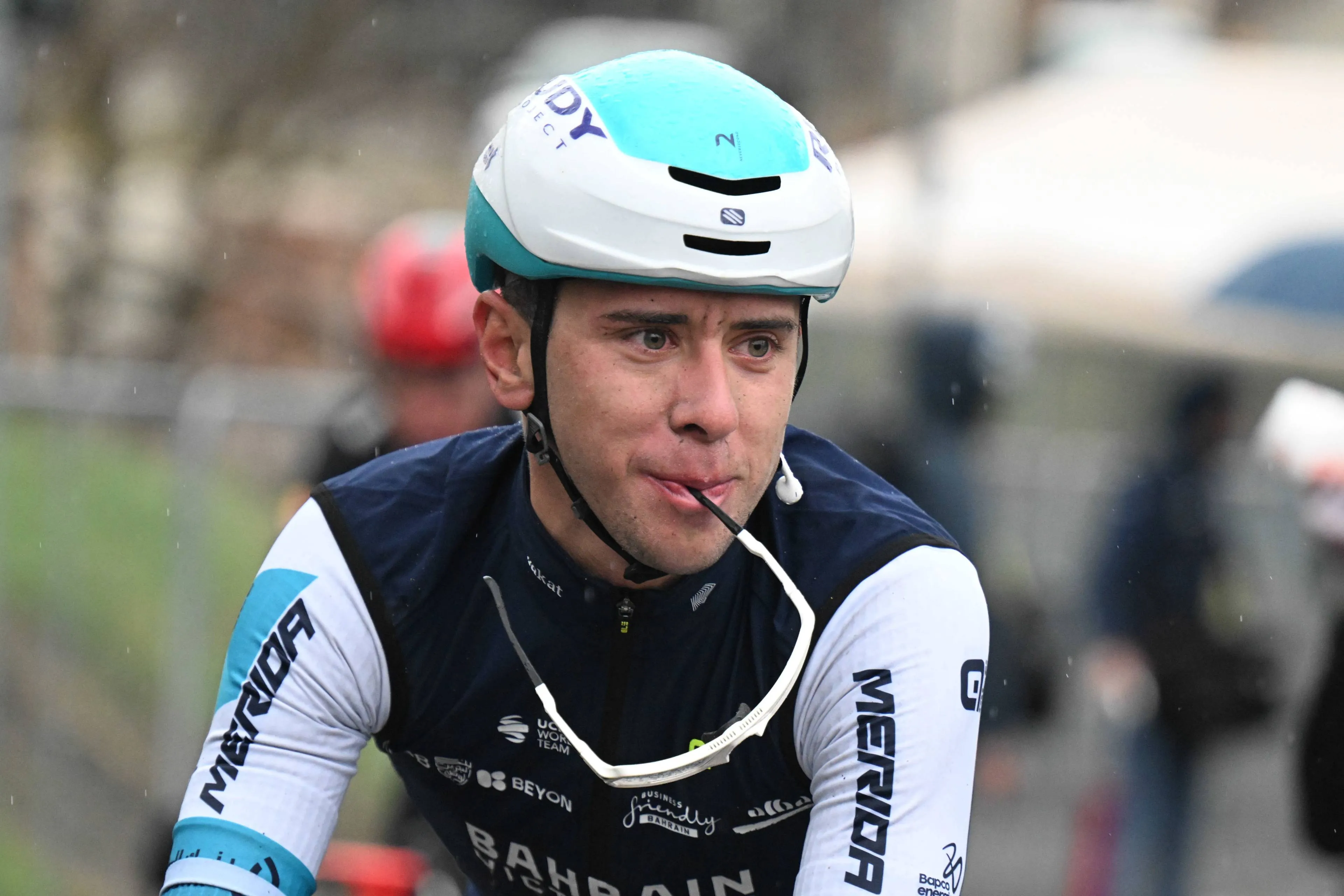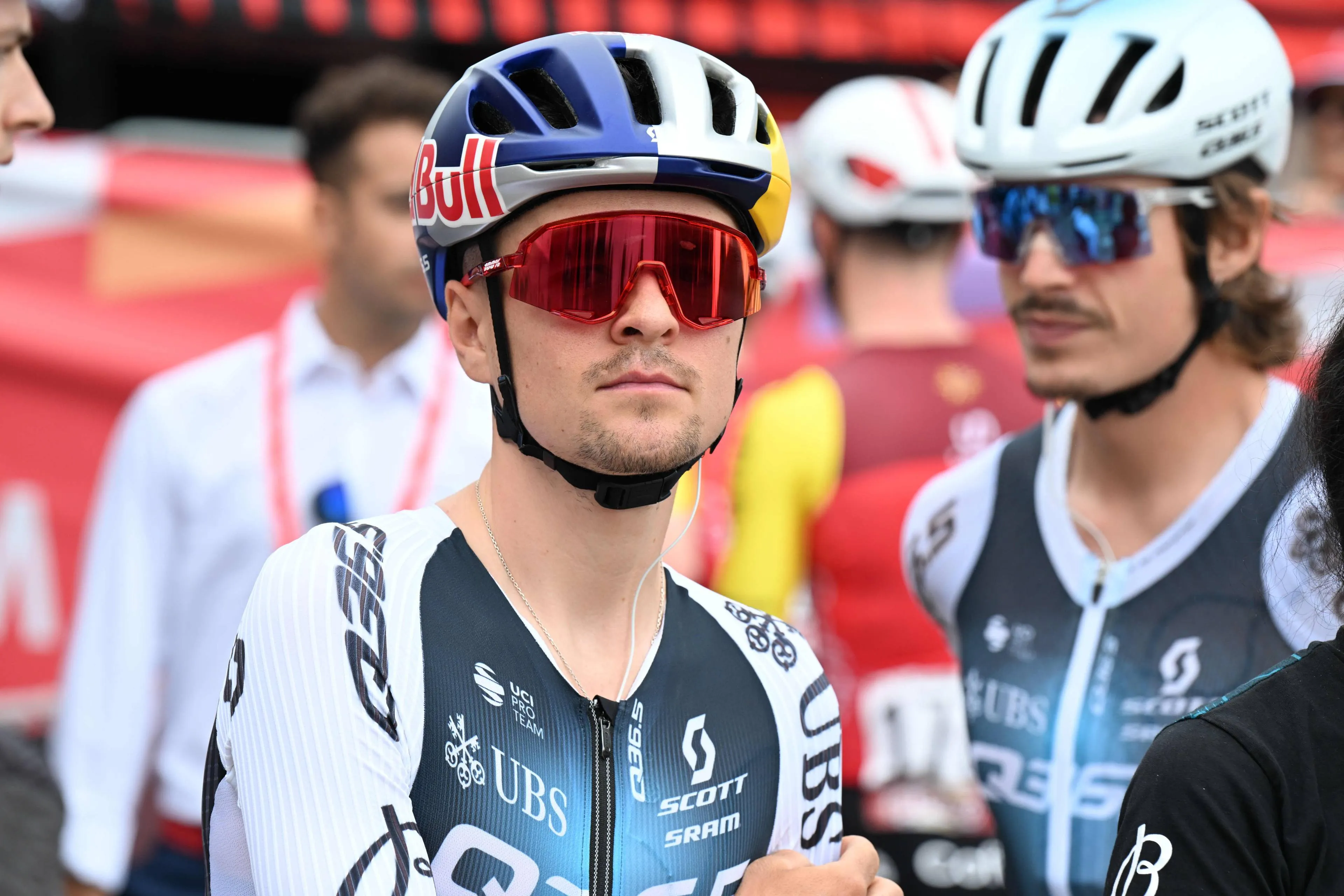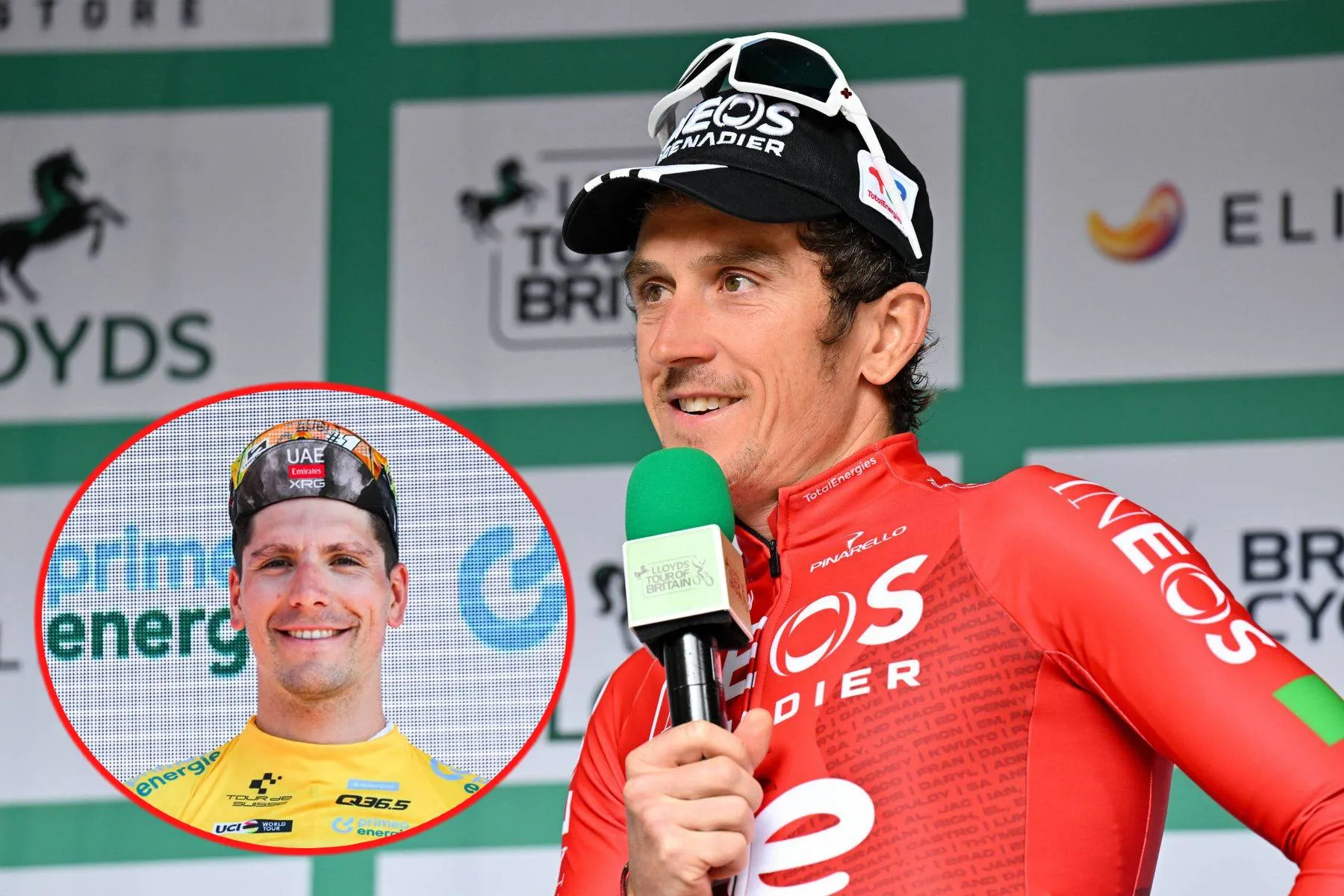2024 Season Review | Cofidis: Grand Tour struggles, and a big year ahead to secure World Tour status
CyclingThursday, 07 November 2024 at 10:00

The 2024 season proved to be a significant challenge for
Cofidis, a team steeped in cycling tradition since its establishment in 1996 by
Cyrille Guimard. Their campaign this year highlighted deep routed issues within
the squad, raising concerns about their future in the World Tour. Having
dropped five places from their 2023 position, the team closed the season ranked
20th with 7889.8 UCI points, only managing to avoid last place in the World
Tour standings due to Astana Qazaqstan Team's performance.
A year lacking wins
Cofidis’ results this year were a stark reminder of their
fluctuating fortunes since their reintroduction to World Tour status in 2020.
Though they carry a history of notable performances and high expectations, they
have also faced periods marred by doping scandals that cast long shadows over
their successes. Under the management of Cédric Vasseur, a former professional
cyclist with two Tour de France stage wins to his name, the team has been
seeking to reinvent itself and had made some positive progress in 2023. This
year, however, the team fell short on many fronts.
Read also
The team achieved just five race victories throughout the
entire season, an outcome that will undoubtedly push them into a period of
introspection as they prepare for 2025. This underwhelming tally signals a need
for stronger results, particularly in the classics and grand tours where points
and prestige are paramount.
Classics season review
The spring classics yielded just one significant victory for
Cofidis, courtesy of Axel Zingle. Known for his consistent performances and
podium finishes in smaller one-day races, Zingle finally secured a win at the
Boucles de l'Aulne after a string of near-misses. The hilly course around
Châteaulin, a French classic known for its relentless climbs, witnessed a tight
contest that ended with Zingle out-sprinting competitors like Alexandre
Delettre and Mads Wurtz Schmidt.
Read also
Zingle's win was a bright spot in an otherwise lacklustre
classics campaign. Despite this success, the team failed to make their presence
felt in the bigger one-day races. The autumn season brought a slight resurgence
when Ion Izagirre placed fourth at Il Lombardia, adding 120 valuable UCI points,
the second-largest contribution to the team’s score. However, isolated results
like these only underscore the larger problem: Cofidis needs more depth and
reliable performances throughout the year, not just in sporadic moments.
Grand Tour season review: minimal returns
Grand tours are essential for team rankings, sponsorships,
and visibility in the cycling world. For Cofidis, the 2024 grand tours
highlighted their struggle to compete at the highest level. Their first win of
the season came only during stage 5 of the Giro d'Italia, when Benjamin Thomas
heroically emerged victorious from a breakaway in a thrilling finale. “This
felt like an endless team pursuit,” Thomas reflected, describing the
cooperative yet desperate push that held the peloton at bay in the final kilometres.
The victory was a testament to Thomas’ form on the day, and it was a brief but
vital moment of triumph for the team.
Read also
Simon Geschke's 14th-place finish in the Giro GC added 110
points to the team's overall tally, a decent contribution but not enough to
elevate their standing significantly. The Tour de France, the pinnacle of the
cycling season and an event where Cofidis historically has ambitions to shine,
turned into a disappointment. Guillaume Martin's 13th-place finish in the
general classification, securing 170 points, was their most substantial result.
Yet, the lack of stage wins and minimal close calls left the French team
without much to celebrate in their most important race.
The Vuelta a España presented similar challenges, with
Martin once again being the team's standout rider by finishing 15th in the GC
and contributing 100 points. However, a reliance on GC finishes outside the top
10 as their highest achievements reflects deeper issues. Strong results in
grand tours are critical not just for the points but for the prestige and
financial incentives that come with visibility on the sport’s grandest stages.
Without consistent podiums or stage wins, teams struggle to attract sponsors,
top riders, and maintain morale.
If a team’s top results in a season were finishing outside
the top 10 in all 3 grand tours, they have some problems on their hands.
Cofidis cannot afford a repeat of this year.
Read also
A strong showing in grand tours impacts more than just a
team’s ranking. It draws sponsor interest, ensures better media exposure, and
helps secure the future of the team by enhancing its reputation. In the
competitive world of professional cycling, grand tours can make or break a
team's season. For Cofidis, a failure to excel in the Tour de France, Giro
d’Italia, and Vuelta a España creates a pressing need for change.
Transfer news heading in to 2025
2025 is set to be a crucial year for Cofidis as they fight
to avoid relegation from the World Tour. The team has experienced notable
departures, with Axel Zingle moving to Visma | Lease a Bike. Zingle’s ability
to consistently secure podium finishes, especially in 1.Pro and 1.1 races, has
made him a valuable rider. His exit follows a pattern seen with Christophe
Laporte’s move three years prior, leaving Cofidis without a reliable performer
in certain race profiles.
On a more positive note, the team’s increased budget has
allowed them to invest in new talent. The arrivals of Emanuel Buchmann, Dylan
Teuns, and Alex Aranburu signal a shift towards rebuilding. Aranburu, the
Spanish national champion, brings both experience and a potent sprinting
capability, complementing the hilly one-day races of the French and Spanish
calendars. “Alex already has a solid track record and is entering his prime
years,” said Vasseur, expressing confidence in Aranburu’s potential impact.
Read also
Teuns, joining on a two-year deal, is a seasoned classics
contender and a potential grand tour stage winner. His ambitions align with the
team’s need for stronger performances in prestigious races. “Vandenbroucke is
the last person to have won a monument with Cofidis, and I want to do
everything so that we can aim for a podium in this type of race,” Teuns
remarked, underscoring the drive to bring back the team's glory days. The duo
of Teuns and Aranburu, supported by Buchmann’s climbing prowess, offers hope
that Cofidis can improve their standing and avoid relegation.
Final rating: 3.5/10
Cofidis’ 2024 season, marred by minimal wins and a
dependency on lower GC placements, paints a worrying picture. Their ranking and
the upcoming threat of relegation place immense pressure on Vasseur and his
squad to deliver in 2025. The team’s signings show an intent to revitalize
their roster, but execution will be key. The upcoming season will determine
whether these changes translate into results or if Cofidis will face an even
steeper climb to retain their World Tour status.
Despite pockets of success, 2024 was a season where Cofidis
underperformed across key races. With a revamped squad and heightened stakes,
2025 holds the potential for a turnaround or further descent. The pressure is
on.
Read also
claps 0visitors 0
Just in
Popular news
Latest comments
- You need to get out moreJezla18-02-2026
- Ego and self regard are at the center of most human folly.TheOlderIGetTheFasterIWas18-02-2026
- You can't win 'em all. These early season races at this level are good because it shows where you are weak and need work.awp18-02-2026
- This is what I wrote 12-02-2026 10:00: "As far as I'm convinced, Remco still has "zero" wins. I invite Remco to stop in Siena to meet his Slovenian master, Pogi the G.O.A.T... but no, it's better to run away and hide. His fans will somehow defend and glorify him. Let me repeat, he still has zero wins in 2026. If someone doesn't have a high enough IQ to understand what I'm talking about, it's because they don't recognize the low ranking F category races. If Remco will beat Del Toro and Adam Yates in the UAE Tour, then I will consider this to be his first win in 2026. Ad acta." PS: Remco still has zero wins. His second and third class races don't count. The first real race comes along and Mustafa Remco fails.Mou-Cro-HR18-02-2026
- This is what I wrote 12-02-2026 10:00: "As far as I'm convinced, Remco still has "zero" wins. I invite Remco to stop in Siena to meet his Slovenian master, Pogi the G.O.A.T... but no, it's better to run away and hide. His fans will somehow defend and glorify him. Let me repeat, he still has zero wins in 2026. If someone doesn't have a high enough IQ to understand what I'm talking about, it's because they don't recognize the low ranking F category races. If Remco will beat Del Toro and Adam Yates in the UAE Tour, then I will consider this to be his first win in 2026. Ad acta." PS: Remco still has zero wins. His second and third class races don't count. The first real race comes along and Mustafa fails.Mou-Cro-HR18-02-2026
- OK, let's stop with the BS. Remco Mustafa didn't have any cramps, 100%. The only truth is, Remco is not the great cyclist that the Belgians and his fans want us to think. Ad acta!!!... Once in the fall of 2025 I said that Remco's chances of following Pogi are equal to my chances, there is no difference. The only difference is that I'm in front of a TV and Mustafa is acting and making excuses live in front of an audience of millions. Ayuso and Remco are the biggest liars in the peleton.Mou-Cro-HR18-02-2026
- I just hope that he just says that he got cramps and that's it, rather than some long-winded excuse which makes him seem even more of a piece of...
 Rafionain-Glas18-02-2026
Rafionain-Glas18-02-2026 - finally, a team that does something smart. I could never understand why Ineos would like Egan train as he did alone. put a motorbike behind him with an earpiece to call out issues above. same with remco crashing into a postal truck.mij18-02-2026
- Wow, that is not a good sign for Remco. Great win for Tiberi!Pedalmasher18-02-2026
- Great champion Remco but his profile is more suitable for Ardennes-like races and tour with no very hard climbs. Not only Tadej and Vingegaard, there are a lot of younger cyclists (del Toro, Ayuso, maybe Seixas, Nordhagen and others) that will soon be big GC boys.
 maria2024202418-02-2026
maria2024202418-02-2026
Loading
Write a comment
